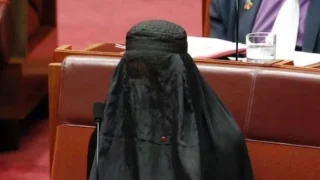
Educational reforms are urgently needed if children in remote Aboriginal communities are to enjoy the opportunities open to other Australian children. Children in remote areas, such as the Tiwi Islands, leave primary school without the skills that would enable them to succeed in secondary education. This is the principal reason why so many Aboriginal people are unable to find jobs. Parents and communities must take responsibility for the education of their children. Tiwi people, and Aboriginal people generally, cannot afford to lose further generations of young people to educational deprivation.
Fundamental changes must include:
1. Re-engaging parents as educators of their children
Because of the damage done by welfare dependence during the last 30 years, parents now need assistance to retake responsibility for their children’s health and education. Parents and communities must resume responsibility for teaching local culture, customs and language during the vital first five years of a child’s life.
2. Providing comprehensive childcare and pre-school education
The majority of Aboriginal children in remote communities are totally unprepared to start school. A significant proportion of the current education funding in remote communities would be better directed to comprehensive early childhood education for parents and children.
3. Linking child welfare benefi ts to education
Regular school attendance is a profound problem. Absenteeism is a result of both the loss of structure and purpose in the lives of the adults, and also the irrelevance of schooling to a future on welfare. Linking welfare payments to regular attendance in early childhood education and school programmes would assist families in regaining control of their lives by providing education content that opens up prospects for employment.
4. Putting primary education fi rst
Primary education must be emphasised. The curriculum must equip children with the literacy, numeracy and other skills necessary to continue successfully to secondary education, post-secondary education, and employment. More specialist and support staff are needed in remote schools to assist and protect classroom teachers. And school buildings and facilities in remote communities need major overhauls with priority given to ongoing hygiene and maintenance.
5. Supporting teachers and students through ‘twinning’ relationships
To reduce teaching staff turnover in remote Aboriginal communities, mainstream Australian schools should develop ‘twinning’ arrangements with staff exchanges, mentoring support, assistance with curriculum development, and communications and exchanges between students.
Offering structured scholarship programmes for secondary education
Scholarship and support systems are urgently needed so that many more Aboriginal children from remote communities can attend mainstream boarding or day schools. Regional mainstream secondary schools need to offer appropriate boarding facilities or hostels where Aboriginal children can feel secure enough to make the most of their education opportunities and proceed to post-secondary training.
7. Mandating work experience and apprenticeship opportunities
Community businesses should offer work experience, training, and apprenticeships for local people in remote communities. But many young Aborigines will have to undertake mainstream apprenticeships, traineeships and work experience to enter the skilled and professional work force. The only way to shift the current paradigm of dependency to one of responsibility and commitment is for policies to ensure that the onus is placed on residents to work and on employers to train.
Aboriginal people know that they are being consigned to a life on welfare by present education policies and systems but are unable to speak out because they lack English language skills. This must change. Parents, children, employers, community members and governments must accept their respective education responsibilities. Governments must not sideline Aboriginal communities by undertaking further reviews, community consultations, inquiries, or offering short-term programmes and soft options to support individual schools and communities. Education providers must no longer short-change schools in remote communities or ignore their need for modern facilities simply because they are out of sight and out of mind.
Veronica Cleary has worked with the Tiwi people on Bathurst and Melville Islands off the coast of the Northern Territory in various capacities between 2002 and 2005. Between 1985 and 2000, she was a teacher, Co-Head of High School, and finally Deputy Principal of The Friends’ School in Hobart. She has a BSc from Manchester University and Cert Ed from Nottingham University.









